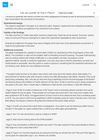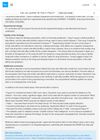 October 2023 in “Naunyn-Schmiedeberg's Archives of Pharmacology”
October 2023 in “Naunyn-Schmiedeberg's Archives of Pharmacology” Custom software found that common allergy drugs might have new uses for various conditions and could improve survival in some cancers.
 August 2023 in “MPPKI (Media Publikasi Promosi Kesehatan Indonesia) : The Indonesia journal of health promotion”
August 2023 in “MPPKI (Media Publikasi Promosi Kesehatan Indonesia) : The Indonesia journal of health promotion” The document's conclusion cannot be provided because the document is not available or cannot be parsed.
 April 2023 in “IntechOpen eBooks”
April 2023 in “IntechOpen eBooks” Drug repurposing speeds up drug development, saves money, and has led to about a third of new drug approvals.

The peer review highlighted the need for clearer data handling, questioned the study's validity, and recognized improvements from the original version.

Reviewers suggested the study on finding new drug uses through social media side-effects needs better methods and clearer limitations.

Reviewers criticized the study for assuming drugs with similar side-effects work the same way and questioned the validity of its findings due to potential biases and data quality issues.

The study improved and was accepted despite initial concerns about data clarity, methodology, and potential overfitting.

Reviewers criticized the study's methods and suggested focusing on drug mechanisms instead of repositioning due to social media data quality concerns.

Reviewers criticized the study for its assumptions, social media data collection issues, and lack of comparison to existing methods.
December 2022 in “International Journal of Molecular Sciences” Afatinib, neratinib, and zanubrutinib could be effective against KRASG12C-mutant tumors.
November 2022 in “The Journal of Urology” Adopting the Mark Cuban Cost Plus Drug Company pricing model could save Medicare about $1.29 billion on urological drugs.
September 2022 in “Translational Andrology and Urology” Finasteride may cause lasting sexual and mental health issues, and genetic screening could help prevent them.
 36 citations,
September 2001 in “Journal of The European Academy of Dermatology and Venereology”
36 citations,
September 2001 in “Journal of The European Academy of Dermatology and Venereology” Finasteride doesn't reduce sexual function in people with hair loss.
 6 citations,
January 2020 in “Dermatology”
6 citations,
January 2020 in “Dermatology” Finasteride may increase suicide risk; more research needed.
January 2018 in “Journal of human virology & retrovirology” Lifestyle drugs are mainly used by wealthy people in India but could spread to others, affecting society and youth.










